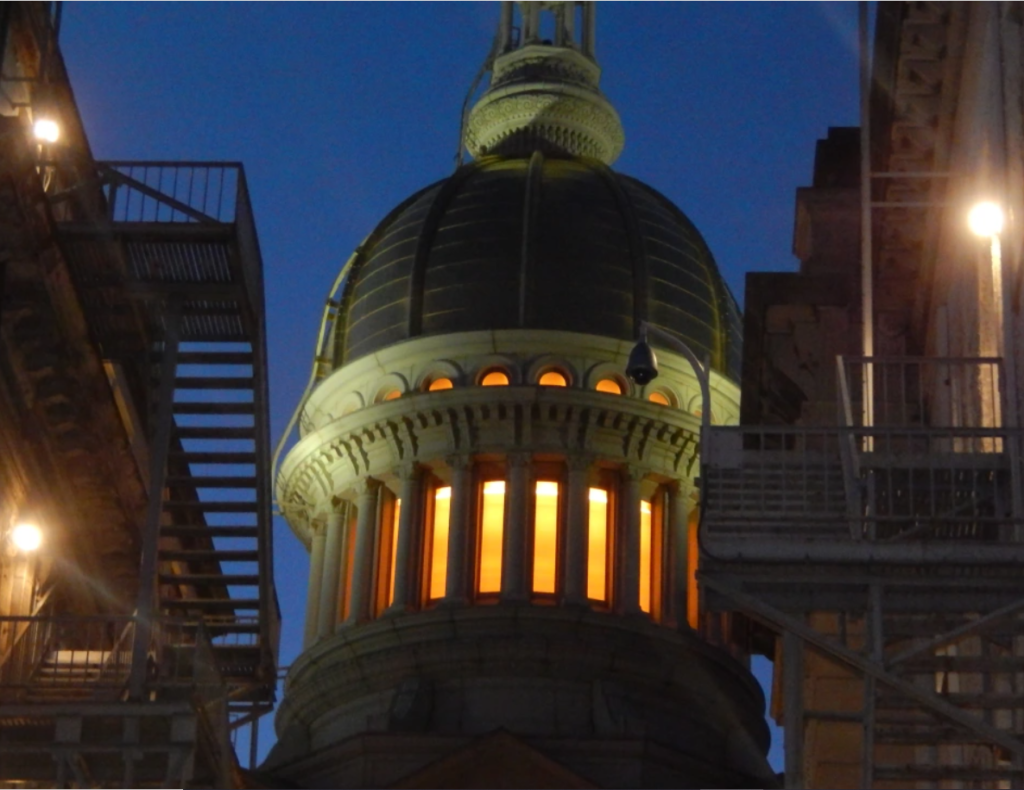Murphy Signs Legislation Designating Franklinite as State Mineral

Governor Murphy Signs Legislation Designating Franklinite as State Mineral
TRENTON – Governor Phil Murphy today signed S1727/A3393, which designates franklinite as the official mineral of the State of New Jersey. Sponsored by Senators Steven Oroho and Edward Durr and Assemblymen Parker Space, Hal Wirths, and Kevin J. Rooney, the legislation recognizes a source of New Jersey pride and a crucial contributor to the state’s industrial history.
“By designating franklinite as the official State Mineral, we celebrate yet another quintessentially Jersey piece of history,” said Governor Murphy. “Franklinite quite literally helped build our modernizing nation’s foundation while fueling the growth of the railroad industry and New Jersey’s local economies. This legislation will ensure that franklinite’s enduring economic and cultural legacy is remembered not just in Sussex County, but across the Garden State.”
“The Murphy Administration’s recognition of franklinite as the New Jersey State Mineral underscores the worldwide renown and critical role that franklinite has had in the industrial history of our state,” said New Jersey State Geologist Jeff Hoffman. “The largest deposit of franklinite in the world is in the ore bodies that supplied the Franklin Mine and Sterling Hill Mine in Sussex County. Zinc from these mines supported many uses and was crucial to early industrial development in New Jersey. Moreover, these mines were the largest supplier of zinc during World War II, providing the raw materials needed for weapons that helped protect our country and troops.”
“Franklinite represents an important part of New Jersey’s history for the role it played in helping to industrialize our state,” said Senator Steven Oroho. “Found exclusively in the United States in the communities of Franklin and Ogdensburg, franklinite is a critical link to our state’s mineral mining heritage and its designation as New Jersey’s official state mineral is most appropriate.”
“Franklinite is a mineral unique to New Jersey and was a key component to the modernization of our state during the 19th and 20th centuries,” said Senator Edward Durr. “With the signing of this bill, New Jersey will recognize the tremendous impact this mineral has had on the construction of water, electric, and other crucial infrastructure we rely on every day.”
“Franklinite is as unique to New Jersey as the Pine Barrens are, and was the driving force behind the state’s thriving mining industry,” said Assemblyman Parker Space. “The discovery and mining of this rare ore built Franklin. Its importance can’t be overstated.”
“There are many people to thank who helped get this bill to the Governor’s desk,” said Assemblyman Hal Wirths. “Jeff Osowski of the Sterling Hill Mining Museum built the momentum for this years ago; Bill Truran took a keen interest in organizing support when he became the Sussex County Historian in 2019; and all the students in Northern New Jersey who kept writing letters to get this bill through the legislative process and now signed into law. This is a great day for everyone involved.”
“Franklinite, an ore only found in New Jersey, built a town and was a driving force in our state economy while benefitting millions around the globe,” said Assemblyman Kevin J. Rooney. “It’s fitting to name it the official state mineral.”
“The Sterling Hill Mining Museum has been working for years to gain recognition for franklinite as the New Jersey State Mineral. It was one of the driving forces in the economic development of Sussex County in the 1800s,” said William Kroth, President and Executive Director of the Sterling Hill Mining Museum, Inc. “After the franklinite ore was processed to remove the zinc, it then became the source of high manganese steel, which was vital for the railroad industry. Franklinite is found nowhere else in the world in as great a quantity as in New Jersey. The Sterling Hill Mining Museum, a 501(c)(3) educational institution, is looking forward to building on this recognition in its outreach to students.”







